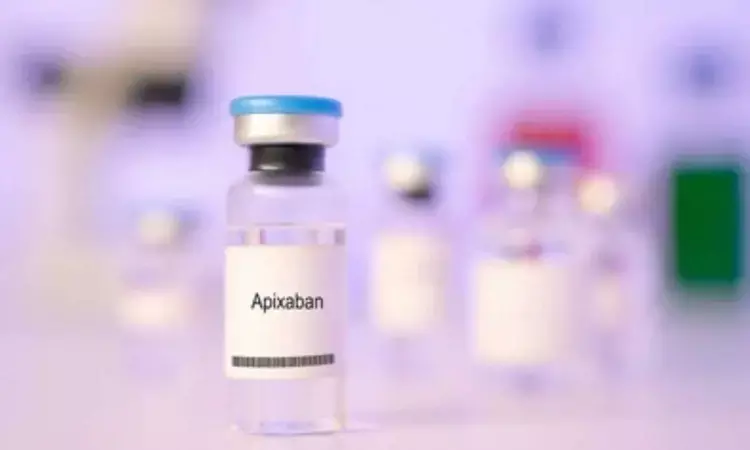- Home
- Medical news & Guidelines
- Anesthesiology
- Cardiology and CTVS
- Critical Care
- Dentistry
- Dermatology
- Diabetes and Endocrinology
- ENT
- Gastroenterology
- Medicine
- Nephrology
- Neurology
- Obstretics-Gynaecology
- Oncology
- Ophthalmology
- Orthopaedics
- Pediatrics-Neonatology
- Psychiatry
- Pulmonology
- Radiology
- Surgery
- Urology
- Laboratory Medicine
- Diet
- Nursing
- Paramedical
- Physiotherapy
- Health news
- Fact Check
- Bone Health Fact Check
- Brain Health Fact Check
- Cancer Related Fact Check
- Child Care Fact Check
- Dental and oral health fact check
- Diabetes and metabolic health fact check
- Diet and Nutrition Fact Check
- Eye and ENT Care Fact Check
- Fitness fact check
- Gut health fact check
- Heart health fact check
- Kidney health fact check
- Medical education fact check
- Men's health fact check
- Respiratory fact check
- Skin and hair care fact check
- Vaccine and Immunization fact check
- Women's health fact check
- AYUSH
- State News
- Andaman and Nicobar Islands
- Andhra Pradesh
- Arunachal Pradesh
- Assam
- Bihar
- Chandigarh
- Chattisgarh
- Dadra and Nagar Haveli
- Daman and Diu
- Delhi
- Goa
- Gujarat
- Haryana
- Himachal Pradesh
- Jammu & Kashmir
- Jharkhand
- Karnataka
- Kerala
- Ladakh
- Lakshadweep
- Madhya Pradesh
- Maharashtra
- Manipur
- Meghalaya
- Mizoram
- Nagaland
- Odisha
- Puducherry
- Punjab
- Rajasthan
- Sikkim
- Tamil Nadu
- Telangana
- Tripura
- Uttar Pradesh
- Uttrakhand
- West Bengal
- Medical Education
- Industry
Apixaban associated with lower risk of GI bleeding compared to all DOACs

A multinational cohort study of persons with atrial fibrillation (AF) found that compared with all direct oral anticoagulants (DOACs), apixaban was associated with lower rates of gastrointestinal (GI) bleeding but similar rates of ischemic stroke, intracranial hemorrhage (ICH), and all-cause mortality. The findings are published in Annals of Internal Medicine.
DOACs are commonly used to prevent strokes in persons with AF. However, there is not clear guidance for choosing among the four available DOACs because head-to head clinical trial data are not available.
Researchers from University College London studied more than 500,000 new DOAC users in France, Germany, the United Kingdom, and the United States to compare outcomes and adverse effects. They analyzed data for 281,320 apixaban users; 61,008 dabigatran users; 12,722 edoxaban users; and 172,176 rivaroxaban users. They found that use of apixaban was associated with lower rates of GI bleeding compared to other DOACs.
However, no meaningful differences were observed between DOACs in outcomes or other comparisons. They report that users of apixaban experienced similar rates of ischemic stroke or systemic embolism, ICH, and all-cause mortality compared with other DOACs.
The authors also report that these findings were generally consistent for patients aged 80 years or older and patients with chronic kidney disease, who are often underrepresented in clinical trials. According to the authors, their results indicate that apixaban might be preferable to other DOACs because of the lower rate of GIB and similar rates of stroke and ICH, but consideration of all potential risks and benefits would be needed, such as the use of gastroprotective agents in patients with high risk for GIB.
Reference: Wallis C.Y. Lau, Carmen Olga Torre, Kenneth K.C. Man, Henry Morgan Stewart, Sarah Seager, Mui Van Zandt, Christian Reich, Jing Li, Jack Brewster, Gregory Y.H. Lip, Aroon D. Hingorani, Li Wei and Ian C.K. Wong https://doi.org/10.7326/M22-0511
Dr Kamal Kant Kohli-MBBS, DTCD- a chest specialist with more than 30 years of practice and a flair for writing clinical articles, Dr Kamal Kant Kohli joined Medical Dialogues as a Chief Editor of Medical News. Besides writing articles, as an editor, he proofreads and verifies all the medical content published on Medical Dialogues including those coming from journals, studies,medical conferences,guidelines etc. Email: drkohli@medicaldialogues.in. Contact no. 011-43720751


